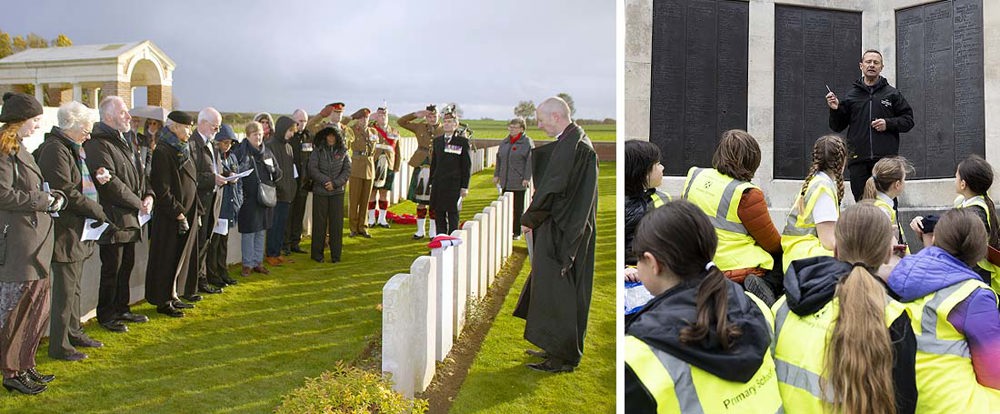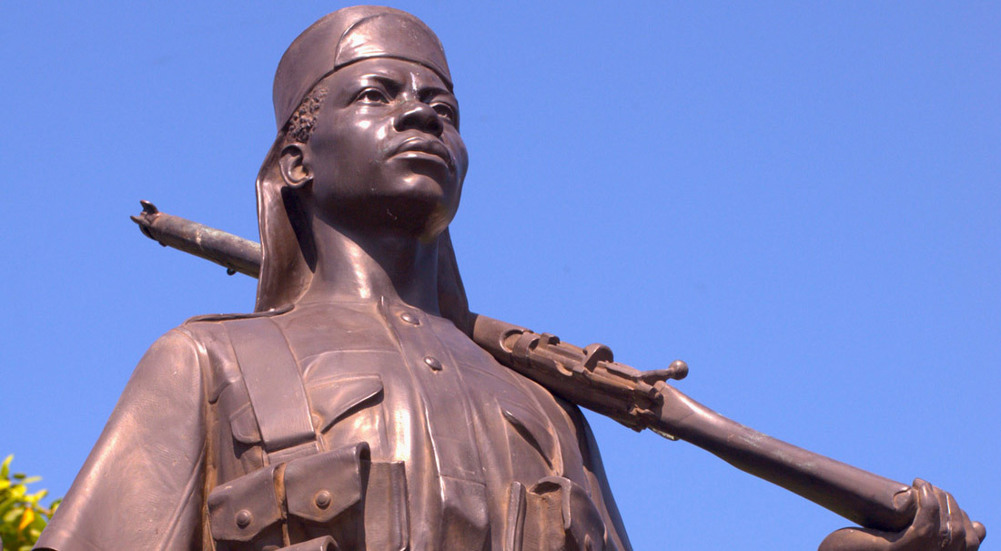Who we are
The Commonwealth War Graves Commission’s mission is to ensure those who died in service, or as a result of conflict, are commemorated so that they, and the human cost of war, are remembered for ever.
VIEW OUR NEW CWGC DOCUMENTARY
Follow the work of the CWGC, see how we commemorate the fallen across the globe and how we engage current and future generations with their stories.
The Commonwealth War Graves Commission is a global leader in commemoration. Founded by Royal Charter in 1917, we work on behalf of the Governments of Australia, Canada, India, New Zealand, South Africa and the United Kingdom to commemorate the 1.7 million men and women from the Commonwealth who lost their lives in the two World Wars.
We believe that remembering individuals who have died in conflicts is of universal, perpetual relevance, and that reflecting on their deaths is of continuing and paramount importance for us all.
The cemeteries, memorials, graves, landscapes, and records in our care will be found at 23,000 locations and in more than 150 countries and territories. They are both the practical means of our commemoration of the fallen and vehicles for discovery, inspiration, and engagement.
We believe that each one of those we commemorate were people like us, with their own ambitions, hopes, and dreams. It is our duty and privilege to care for their graves and memorials and through our charitable Foundation, keep their stories alive.
OUR COMMITMENT NEVER ENDS
Every year remains are discovered, identified and reburied with honours, their names no longer on our many memorials to the missing but over their final resting place.
Our active public engagement and education programmes ensure the stories of the fallen are told to all generations through talks and tours at our sites and in schools, clubs, societies and organisations. Our War Graves Week every May throws a spotlight on the work we do and the men and women we commemorate.

We constantly care and repair our sites, some of them have reached or will soon be reaching their centenaries and are facing challenges our founders could not have envisaged requiring new materials and processes to ensure their longevity.
Our founders were determined that all the men and women of the British Empire who fell on the former battlefields of the First World War, on land and at sea, should be commemorated equally. The CWGC takes great pride in the principles that drove this work, which said that the organisation would not differentiate between the dead on the grounds of social or military rank, or by religion.
Our Non-Commemoration project works to identify any cases where names have been missed from our records, with extensive research already yielding important information helping ensure all Commonwealth war dead are commemorated as originally promised.


Have a question about our work? Read our list of FAQs and get in touch with our dedicated enquiries team.
Frequently Asked Questions
Our Commissioners are appointed for a term of four years with the option of being extended for a further four years.
Our Commissioners
Our Global Leadership Team oversee the strategic direction of the Commission. Meet the team.
Meet our Global Leadership Team
Our free apps are help you make the most of your visit, whether researching a headstone or deciding which of our sites to discover next.
CWGC Mobile apps
Learn about the role of the CWGC, including our customer charter, funding explanation and our strategic vision.
Information on the CWGC
To help us continue with our work, we work closely with various organisations around the world - including our equivalent organisations in other member nations, educational organisation and charities.
Our partners
Read our guidance on our procurement process and find out which opportunities are currently available.
Doing business with the Commission


